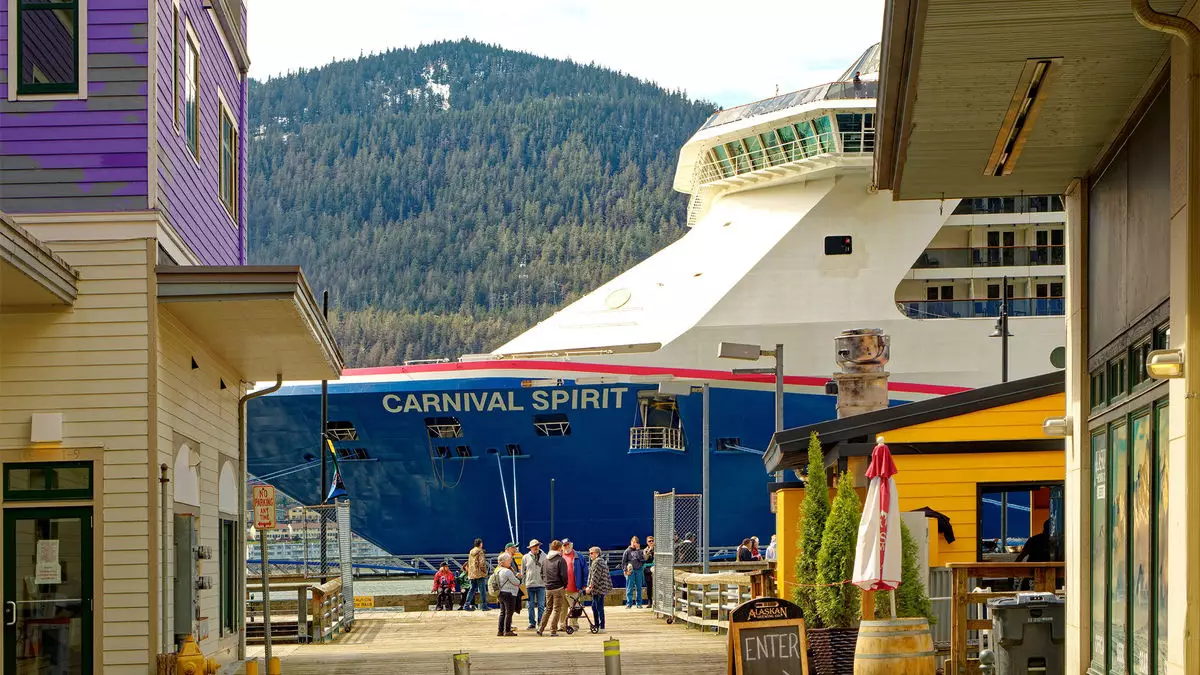In an unexpected turn of events, Juneau’s residents have largely voted against a proposed measure aimed at restricting cruise ship operations on Saturdays and the Fourth of July. Preliminary voting results indicate that approximately 60% of participants opposed Proposition #2, a decision that holds significant implications for the local economy and tourism landscape. The proposal, initiated by a concerned group of local residents, sought to limit the number of cruise ships carrying 250 or more passengers from docking during these peak times starting as early as next summer.
The motivation behind this ballot initiative stemmed from growing concerns over the burgeoning cruise traffic in Juneau, particularly in the wake of the significant rebound in tourism following the pandemic. Its supporters, who collectively gathered over 2,300 signatures to bring the measure to vote, argued that a Saturday ban would help alleviate congestion and preserve the local community’s quality of life. However, the resistance to the measure signals a broader acceptance of the cruise industry’s role in Juneau’s economy.
Cruise traffic has notably surged in Juneau, with passenger volumes in 2023 surpassing figures seen prior to the pandemic. With 1.7 million cruise visitors recorded, this figure represents an astonishing increase of around 30% compared to 2019, prompting local government officials to seek ways to manage the growth effectively. Juneau’s swift recovery from the pandemic’s impact has caught the attention of neighboring ports, as municipalities across Alaska grapple with similar challenges.
In response to the escalating passenger volumes, Juneau’s city administration has implemented various measures to regulate cruise traffic. Notably, a cap limiting the number of ships allowed to dock simultaneously was established this year, alongside a future cap on lower-berth accommodations set to be enforced in 2026. These measures indicate a proactive approach to addressing residents’ concerns while recognizing the economic advantages that a bustling cruise industry brings to the community.
The unfolding situation in Juneau reflects a growing narrative across Alaskan ports as they navigate the complexities of expanding cruise operations. Haines, another significant port, is also considering methods to cope with rising tourism numbers. Starting in 2025, the town will impose a cruise passenger fee, beginning at $9 per visitor and projected to incrementally rise over the following years.
This potential paradigm shift underscores the necessity for Alaskan port towns to strike a balance between harnessing the economic benefits of tourism while also preserving the integrity of their communities and environments. With upcoming measures in Juneau and Haines, the focus appears to be shifting towards creating a sustainable framework for managing cruise ship traffic.
As Juneau’s residents reflect on the recent ballot results, it’s essential to recognize the underlying battle between community values and economic realities. While concerns over congestion and environmental impact are legitimate, the majority’s decision to reject the Saturday cruise ban indicates a preference to embrace the financial benefits that come with increased tourism opportunities. It remains to be seen how Juneau and other Alaskan ports will develop comprehensive strategies to manage this issue while fostering a thriving tourism sector that honors the unique qualities of their communities.


Leave a Reply